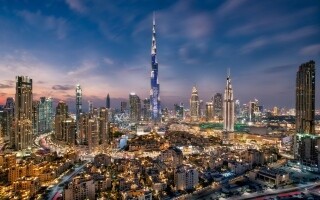
The report indicates that these economic foundations make Dubai a safe and stable long-term investment destination. The report confirmed that Dubai will not resort to large-scale borrowing over the next two years to finance its strategic projects, anticipating a fiscal surplus between 2025 and 2028, driven by strong economic growth, debt reduction over the past three years, and the expansion of the high-value-added services sector. The agency noted that the emirate has announced massive infrastructure projects that will require phased financing through debt instruments. These include the expansion of Al Maktum International Airport at a cost of 35 billion dirhams, the "Tasdeer" rainwater drainage project valued at 30 billion dirhams, scheduled for completion in 2033, and the expansion of the Dubai Metro at a cost of 20.6 billion dirhams. The agency predicts that Dubai's Department of Finance will use public-private partnership models and alternative financing mechanisms to reduce reliance on large debt issuances. It also forecasts that Dubai's average real GDP growth will reach 2.9% between 2025 and 2028, supported by ongoing economic diversification. The report highlights a fiscal surplus of 6.2% of GDP in the first half of 2025, bolstered by growth in fee revenues and land sales. The report expects that interest rate cuts will boost lending growth by around 8% in 2025, while maintaining asset quality and adequate provisions for major banks. The report points out that Dubai achieved an average growth of 3.5% between 2007 and 2024, outperforming the regional average of 1.5%, with growth in the emirate reaching 3.2% in 2024. The non-oil sectors constitute about 70% of nominal GDP, including trade, transport, financial services, manufacturing, real estate, and tourism, with the tourism sector contributing to a 9% increase in the number of tourists in 2024. According to the S&P report, Dubai's population grew by 5.7% to nearly four million people in 2024, boosting the residential property occupancy rate to around 90% in the first quarter of 2025. The report states that Dubai's real estate sector will continue to maintain its strength, supported by government initiatives that promote population growth and long-term visas.












